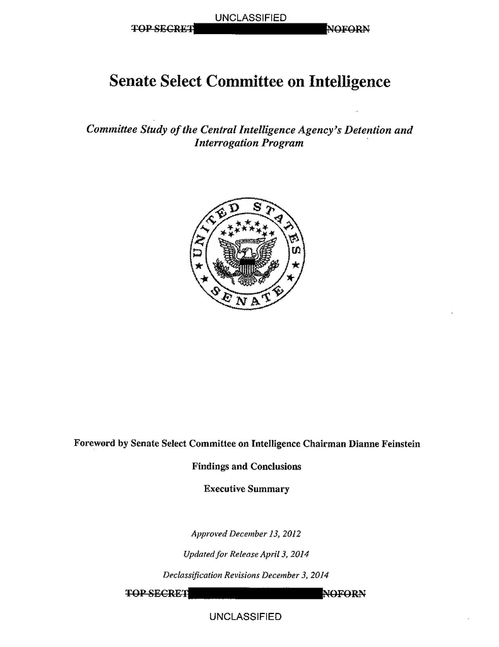Sending a strong message to end impunity and to renew efforts to promote and protect human rights, especially for vulnerable groups, the General Assembly adopted 61 resolutions and seven decisions recommended by its Third Committee (Social, Humanitarian and Cultural) while deferring action on one draft resolution on the situation of human rights in Myanmar pending the issuance of budget implications.
(...)
Recorded votes were requested on a number of drafts, reflecting varying views on a range of topics, including albinism, the right to development and the use of mercenaries. Among those texts tabled for a vote was a landmark resolution on the human rights situation in the Democratic People’s Republic of Korea. By that text, adopted by a recorded vote of 116 in favour to 20 against, with 53 abstentions, the Assembly, for the first time, decided to submit the Special Rapporteur’s report on that country to the Security Council. Also by the text, the Assembly encouraged the Council to take appropriate action to ensure accountability, including through consideration of referral of the situation in that country to the International Criminal Court and consideration of the scope for effective targeted sanctions against those who appeared to be most responsible for acts that the Commission of Inquiry had said could possibly constitute crimes against humanity.
As in previous years, delegates had differing views on such special rapporteur reports and draft resolutions on specific countries. Some speakers said the double standards and selectivity of so-called country-specific reports violated human rights and even threatened the right to self-determination. Some said dialogue was the only way to effectively address human rights concerns.
Explanations of position came from a number of delegations, including those whose countries were the subject of draft resolutions. The representative of the Democratic People’s Republic of Korea said his delegation had rejected the draft resolution on the human rights situation in his country because, in part, it was politically driven and failed to reflect the reality on the ground. Commenting on the draft text on his country, passed by a vote of 83 in favour to 35 against, with 68 abstentions, Iran’s representative said such reports and draft resolutions were unfairly targeting States.
(...)
Background
The General Assembly met this morning to take action on draft resolutions and decisions contained in reports of its Third Committee (Social, Humanitarian and Cultural).
(...)
Opening Statement
(...)
Introduction of Reports
ERVIN NINA (Albania), Rapporteur of the Third Committee, introduced its reports as follows:
(...)
He also presented the Committee’s reports on human rights questions, including alternative approaches for improving the effective enjoyment of human rights and fundamental freedoms (document A/69/488/Add.2); human rights situations and reports of special rapporteurs and representatives (document A/69/488.Add.3);
(...)
Action on Draft Resolutions
(...)
The Assembly then turned to the Third Committee’s report Human rights situations and reports of special rapporteurs and representatives (document A/69/488/Add.3), containing four draft resolutions covering the situation of human rights in the Democratic People’s Republic of Korea, Syria, Myanmar and Iran. It deferred consideration of a draft resolution on the situation of human rights in Myanmar until the issuance of the pertinent Fifth Committee report.
Speaking in explanation of vote before the votes, the representative of the United Arab Emirates stated that his country was one of the co-sponsors of the resolution on human rights in Syria because it was necessary to put an end to the human rights violations, including killings and arbitrary detentions, suffered by “the brotherly people of Syria”.
Also speaking in explanation of position before the votes, the representative of Syria said that his delegation opposed the draft resolution which criticized the human rights situation in his country. Some regimes were feeding the violence in Syria. They were not content with arming terrorist groups; they were establishing military training camps. Saudi Arabia was the main cause of religious hatred in the region. The Qatari regime had also provided millions of dollars to terrorist organizations. The report’s criticism was paradoxical given the violations against women and minorities in those and other States. He urged all countries to reconsider their positions and vote against the text.
Also speaking in explanation of position before the votes, the representative of the Democratic People’s Republic of Korea said that his delegation rejected the draft resolution on human rights situation in his country, because it was “the product of a political plot”. The European Union and Japan had drafted the text based on the fabricated report of the Commission of Enquiry, which had never visited the country. They had blocked all possibilities for dialogue and cooperation by forcibly pushing the adoption of the resolution. Their intention was not the promotion of human rights, but sycophancy and subservience to the United States, which had conducted shocking violations as evidenced by the Central Intelligence Agency torture crimes.
The representative of Iran, in explanation of position before the votes, said that the draft resolution on human rights situation in his country was “political, prejudicial and unbalanced.” It ignored the fact that Iranian society was a vibrant and multi-voiced society. It also failed to acknowledge the positive developments in Iran since the beginning of the new Government’s tenure and the constant readiness of the Iranian Government to cooperate with the United Nations human rights mechanisms. Country-specific resolutions, such as the one before the Assembly, were counterproductive because they increased distrust and damaged the Organization’s credibility.
In explanation of position before the votes, the representative of Cuba said that her country had always opposed country-specific resolutions in the Third Committee because they were politically motivated and contributed nothing to the promotion of human rights. The Human Rights Council and the Universal Period Review mechanism were the forums in which the human rights situations of all countries should be considered on an equal footing. The resolution on the Democratic People’s Republic of Korea had created a dangerous precedent that threatened the right to self-determination of States. By referring the issue to the Security Council and the International Criminal Court, the text promoted the sanctioning of countries.
The representative of Algeria, also speaking in explanation of position before the votes, voiced regret at the continued double standards in the proliferation of country-specific resolutions. Differences on human rights should be resolved through dialogue, not confrontation. The General Assembly should adopt a new approach that promoted technical cooperation, dialogue and transparency. Selective resolutions that targeted specific countries undermined the mandate of the Human Rights Council.
In explanation of position before the votes, the representative of Papua New Guinea said that the international community had agreed on the notion that the Human Rights Council had and should continue to underpin the development of human rights. The Universal Periodic Review process had been an important catalyst in that process around the world. Papua New Guinea had had three special rapporteurs visit the country to report on various human rights issues. While the country had not agreed with every aspect of the reports, it had welcomed the scrutiny. He called on Iran and other countries to allow rapporteurs to visit. In view of that, his delegation would abstain on the resolution related to Iran.
Also speaking in explanation of vote before the votes, the representative of Saudi Arabia said that the delegate of Syria had referred to his country. The General Assembly Chair requested that he wait to exercise his right of reply until the end of the consideration of the draft resolutions.
The Assembly then adopted, by a recorded vote of 116 in favour to 20 against, with 53 abstentions, a draft titled “Situation of human rights in the Democratic People's Republic of Korea”.
Also by a recorded vote of 127 in favour to 13 against, with 48 abstentions, it adopted a text titled “Situation of human rights in the Syrian Arab Republic”.
In another recorded vote — 83 in favour to 35 against, with 68 abstentions — the Assembly adopted a draft titled “Situation of human rights in the Islamic Republic of Iran”.
In explanation of position after adoption, the representative of the Democratic People’s Republic of Korea thanked the delegations that had voted against the resolution regarding his country and stated that the United States was viciously attempting to destroy his nation’s ideology and system. In the light of that dangerous campaign undertaken, the Democratic People’s Republic of Korea would continue to uphold its pride and honour in its socialist system and would do its utmost to defend it.
The representative of El Salvador, also in explanation of position after adoption, said that his delegation had agreed with the text of the draft resolution on the Democratic People’s Republic of Korea that had been originally presented, with the exception of paragraph 8. For constitutional and legal reasons, he noted that he could not support the language in that paragraph. Given the results of voting on the amendment that would have changed that language, and given that co-sponsoring countries had included elements for more “rapprochement”, he said that his delegation had changed its position and had decided to vote for the resolution. However, he emphasized that his country was not currently a party to the Rome Statute, and therefore, its vote in favour of the resolution should not be considered as in any way a change of position on that.
Costa Rica’s representative, in explanation of position after the action, said that country-specific assessments should be undertaken and that the Human Rights Council was the forum in which those situations should be discussed and examined. Furthermore, the Universal Periodic Review was the appropriate mechanism with which to examine human rights. Cooperation and constructive dialogue and other mechanisms should continue to be part of the way human rights were promoted and protected.
In explanation of position, Sri Lanka’s representative said he had voted against the draft text on the Democratic People’s Republic of Korea. He urged that Government to take action to address concerns. “Name and shame” resolutions were unproductive, he said, adding that a cooperative approach had been proposed, but had not been supported. The draft text’s reference to encouraging the Security Council’s referral of the issue to the International Criminal Court was “unacceptable”.
Right of Reply
(...)
Action on Draft Resolutions
(...)
[Voting Record/표결 기록]
http://www.un.org/ga/search/view_doc.asp?symbol=A/69/PV.73
A/69/PV.73
General Assembly
Sixty-ninth session
73rd plenary meeting
Thursday, 18 December 2014, 10 a.m.
New York
(...)
(c) Human rights situations and reports of special rapporteurs and representatives
Report of the Third Committee (A/69/488/Add.3)
The Acting President: The Assembly has before it four draft resolutions recommended by the Third Committee in paragraph 36 of its report.
Before proceeding further, I should like to inform members that action on draft resolution III, entitled “Situation of human rights in Myanmar”, is postponed to a later date to allow time for the review of its programme budget implications by the Fifth Committee. The Assembly will take action on draft resolution III as soon as the report of the Fifth Committee on its programme budget implications is available.
I shall now give the floor to representatives who wish to speak in explanation of vote or position on draft resolutions I, II or IV before we take action on the draft resolutions.
(...)
Mr. An Myong Hun (Democratic People’s Republic of Korea): My delegation would like to state its position on draft resolution I, entitled “Situation of human rights in the Democratic People’s Republic of Korea”, as contained in document A/69/488/Add.3, which was submitted by the European Union (EU) and Japan.
My delegation totally rejects this draft resolution because it has nothing to do with the promotion and protection of human rights, but is the product of a political plot and confrontation against the Democratic People’s Republic of Korea. The European Union and Japan drafted the draft resolution on the basis of a fabricated report of the Commission of Inquiry on Human Rights in the Democratic People’s Republic of Korea (A/HRC/25/63), whose members have never been in my country. Let me once again make it clear that the report of the Commission of Inquiry is a document born of a political plot and has no basic attributes or credibility to be recognized as a General Assembly document, as it is based on the fabricated testimonies of a handful of defectors who committed crimes and fled their homeland.
We have consistently maintained our position of countering confrontation and giving priority to dialogue and cooperation in the field of human rights, and we have also clarified our willingness to engage in broad-ranging constructive dialogue. However, the European Union and Japan completely blocked all possibilities of cooperation in the field of human rights, including a visit to the Democratic People’s Republic of Korea by a Special Rapporteur and a human rights dialogue between the EU and the Democratic People’s Republic of Korea, by forcibly pushing the adoption of the draft resolution, which does not reflect the reality on the ground. Consequently, the European Union and Japan themselves disclosed that their real intention in submitting a draft resolution was not for the genuine promotion and protection of human rights, but purely as an act of subservience and sycophancy in support of the hostile policy of the United States against the Democratic People’s Republic of Korea to overthrow our political and social system.
If countries sponsoring draft resolution I are really interested in the promotion and protection of human rights, they should address the issue of the grave human rights violations being committed in Western countries, such as the recently revealed Central Intelligence Agency’s crimes of torture committed by the United States in the most brutal and shocking manner. My delegation remains consistent with regard to its principled position of holding a dialogue on cooperation in the field of human rights. However, this delegation will not tolerate any attempt to abuse human rights issues as a tool for overthrowing our social system.
Once again, my delegation emphasizes that we strongly reject all the country-specific draft resolutions — not only draft resolution I against my country, but also draft resolutions on the situation of human right in the Islamic Republic of Iran, the Syrian Arab Republic and Myanmar. My delegation firmly believes that all countries will vote against the draft resolution sponsored by the EU and Japan, in line with the principles and universally accepted position to oppose politicization, selectivity and double standards over human rights.
(...)
Mrs. Moreno Guerra (Cuba) (spoke in Spanish): Cuba has traditionally maintained a principled position against country-specific draft resolutions that aim to condemn developing countries based on politically motivated reasons that have nothing to do with defending human rights and that contribute nothing to that cause. These toxic and selective practices of politicization and applying double standards in the consideration of situations of human rights were the reason that led to the discrediting and dissolution of the Human Rights Commission. The establishment of the Human Rights Council and its Universal Periodic Review mechanism offer the possibility to consider situations of human rights issues in all countries on an equal footing, based on genuine and constructive dialogue.
Cuba would like to reiterate that international cooperation based on the principles of objectivity, unconditionality, impartiality and non-selectivity is the only way to effectively promote and protect all human rights. Unfortunately, that is not the goal being pursued today with the draft resolutions against these countries, which are clearly and undoubtedly politically motivated.
With regard to the Democratic People’s Republic of Korea, a dangerous precedent has been established that violates the rights of sovereignty and self-determination of States in referring the issue to the Security Council and, subsequently, to the International Criminal Court. That has a significant negative impact in that it irresponsibly promotes punishment and sanctions on the basis of allegations that have not been proved on the ground. We reiterate that these actions are contradictory to the atmosphere of cooperation and dialogue that is needed in order to strengthen an international system in which all are respected on an equal footing, independently of their wealth or power.
Cuba has roundly opposed country-specific draft resolutions, both in the Third Committee and in the Human Rights Council. In that spirit, we will continue to vote against draft resolutions on the human rights situations in friendly countries, and to disassociate ourselves from the consensus on draft resolutions that are not normally subject to a vote.
We would like to indicate that opposition to these selective and politicized draft resolutions do not prejudge in any way the resolution of the pending issues mentioned in paragraph 3 of the draft resolution, which require a fair and honourable solution with the agreement of all stakeholders.
Ms. Mansouri (Algeria): My delegation would like to explain its position before the Assembly takes action on the draft resolutions on the situation of human rights in the Democratic People’s Republic of Korea (draft resolution I), the Syrian Arab Republic (draft resolution II) and the Islamic Republic of Iran (draft resolution IV), as contained in the report of the Third Committee (A/69/488/Add.3).
My delegation regrets the continued selectivity, double standards, politicization and proliferation of country-specific draft resolutions, as previously highlighted during the ministerial meeting of the Non-Aligned Movement held in Algiers in May. My delegation strongly believes that differences on human rights issues should be resolved through constructive dialogue, and not through confrontational, politically motivated action. Indeed, practice has demonstrated that country-specific draft resolutions have not contributed to the improvement of human rights situations. They only jeopardize trust and provoke confrontation among Member States by ignoring the principle of impartiality, which should govern human rights situations and mechanisms.
The Assembly should adopt a new cooperative approach to the consideration of human rights in those countries that enables the establishment of dialogue and the development of technical cooperation between the Office of the United Nations High Commissioner for Human Rights and the countries concerned in a transparent, fair and equal manner. Moreover, the Universal Periodic Review mechanism should be considered as the primary tool for considering human rights issues, and such discussions should take place in an atmosphere of constructive dialogue within the Human Rights Council. The continued submission of selective draft resolutions that target specific countries is a violation of the principle of universality and objectivity and undermines the mandate of the Human Rights Council. For those reasons, my delegation will abstain in the voting on all country-specific draft resolutions.
(...)
The Acting President: We will now take decisions on draft resolutions I, II and IV, one by one.
We turn first to draft resolution I, entitled “Situation of human rights in the Democratic People’s Republic of Korea”. A recorded vote has been requested.
A recorded vote was taken.
In favour:
Afghanistan, Albania, Andorra, Argentina, Armenia, Australia, Austria, Bahamas, Bahrain, Barbados, Belgium, Belize, Benin, Bhutan, Bosnia and Herzegovina, Botswana, Brazil, Bulgaria, Burkina Faso, Burundi, Cabo Verde, Canada, Central African Republic, Chad, Chile, Colombia, Costa Rica, Côte d’Ivoire, Croatia, Cyprus, Czech Republic, Denmark, Djibouti, Dominica, El Salvador, Estonia, Finland, France, Georgia, Germany, Ghana, Greece, Grenada, Guatemala, Guinea-Bissau, Haiti, Honduras, Hungary, Iceland, Iraq, Ireland, Israel, Italy, Jamaica, Japan, Jordan, Kazakhstan, Kiribati, Latvia, Lebanon, Liberia, Liechtenstein, Lithuania, Luxembourg, Madagascar, Malawi, Maldives, Malta, Marshall Islands, Mauritius, Mexico, Micronesia (Federated States of), Monaco, Montenegro, Morocco, Nauru, Netherlands, New Zealand, Norway, Palau, Panama, Papua New Guinea, Paraguay, Peru, Philippines, Poland, Portugal, Republic of Korea, Republic of Moldova, Romania, Rwanda, Samoa, San Marino, Sao Tome and Principe, Serbia, Seychelles, Sierra Leone, Slovakia, Slovenia, Somalia, South Sudan, Spain, Sweden, Switzerland, Thailand, the former Yugoslav Republic of Macedonia, Timor-Leste, Tunisia, Turkey, Tuvalu, Ukraine, United Arab Emirates, United Kingdom of Great Britain and Northern Ireland, United States of America, Uruguay, Vanuatu
Against:
Belarus, Bolivia (Plurinational State of), China, Cuba, Democratic People’s Republic of Korea, Ecuador, Egypt, Gambia, Iran (Islamic Republic of), Lao People’s Democratic Republic, Myanmar, Oman, Russian Federation, Sri Lanka, Sudan, Syrian Arab Republic, Uzbekistan, Venezuela (Bolivarian Republic of), Viet Nam, Zimbabwe
Abstaining:
Algeria, Angola, Antigua and Barbuda, Bangladesh, Brunei Darussalam, Cambodia, Cameroon, Comoros, Congo, Democratic Republic of the Congo, Dominican Republic, Eritrea, Ethiopia, Fiji, Gabon, Guinea, Guyana, India, Indonesia, Kenya, Kuwait, Kyrgyzstan, Lesotho, Libya, Malaysia, Mali, Mauritania, Mozambique, Namibia, Nepal, Nicaragua, Niger, Nigeria, Pakistan, Qatar, Saint Kitts and Nevis, Saint Lucia, Saint Vincent and the Grenadines, Saudi Arabia, Senegal, Singapore, Solomon Islands, South Africa, Suriname, Tajikistan, Togo, Tonga, Trinidad and Tobago, Turkmenistan, Uganda, United Republic of Tanzania, Yemen, Zambia
Draft resolution I was adopted by 116 votes to 20, with 53 abstentions (resolution 69/188).
(...)
The Acting President: I shall now give the floor to delegations that wish to speak in explanation of vote following the voting.
Mr. An Mayong Hun (Democratic People’s Republic of Korea): The delegation of the Democratic People’s Republic of Korea would like to express its thanks to those delegations that voted against resolution 69/188. My delegation again fully rejects this forcibly adopted resolution against my country. The resolution proves once again that the United States and its followers are ever more viciously resorting to their plot to defame our image and destroy our ideology and system under the pretext of human rights. In the light of the increasingly dangerous human rights campaigns undertaken by hostile forces against the Democratic People’s Republic of Korea, we will keep in our hearts the pride and honour of the socialist system, which was chosen as being consolidated and developed by our people, and we will work to the utmost to defend it.
Mr. Zamora Rivas (El Salvador) (spoke in Spanish): El Salvador would like to explain its vote on resolution 69/188, entitled “Situation of human rights in the Democratic People’s Republic of Korea”.
El Salvador abstained in the voting at the time the resolution was adopted in the Third Committee. We would like to express our agreement with the text that was originally presented, with the exception of paragraph 8 for constitutional and legal reasons that do not allow our country to support the paragraph’s language. Accordingly, El Salvador supported the proposed amendment contained in document A/C.3/69/L.63, which aimed to delete paragraph 8. The amendment, which was not adopted, sought to substitute for paragraph 8 language calling for rapprochement and dialogue on human rights issues. Given the outcome of the voting on the amendment and on the text as a whole today, which includes the second part of the amendment that was not adopted by the Committee, and given the fact that the sponsor countries decided to include in the text aspects on openness to dialogue, El Salvador decided to change its position and to vote in favour of the resolution, despite the fact that paragraph 8 was retained.
Nevertheless, for the record, El Salvador would like to state that with regard to operative paragraph 8, and despite the fact that it has voted in favour of the resolution on the situation of human rights in the Democratic People’s Republic of Korea, El Salvador is currently not a State party to the Rome Statute, and by extension to the International Criminal Court. That is why our vote in favour of this resolution should not be considered as our country’s recognition of the jurisdiction of this international tribunal as stated in paragraph 8.
Ms. Murillo (Costa Rica) (spoke in Spanish): I would like to make a general statement following the adoption of these country-specific resolutions.
Our concern about the human rights situation in the specific countries referred to in the resolutions submitted for consideration in the plenary today led us to vote in favour of all three resolutions. In addition, we maintain our principled position that all country-specific situations should be assessed on their respective merits — including, in this case, steps taken by countries to improve their human rights situations. Nevertheless, my country reiterates that the Human Rights Council has the main mandate on this issue. We should therefore support the Council and give it a prominent role on the issues before us today. The Human Rights Council has the necessary tools at its disposal to consider specific cases that are cause for concern to the international community — situations that, owing to their seriousness, require country-specific attention, such as special procedures. That is why my country believes that addressing country-specific situations should take place in the Human Rights Council. We therefore did not join the resolutions as sponsors in the Third Committee.
We acknowledge that the Universal Periodic Review mechanism provides the appropriate means to consider human rights situations based on transparent, reliable and objective information. Strengthening the mechanism will help to further strengthen the Human Rights Council as the main body of the United Nations for the promotion and protection of human rights throughout the world without any distinction. Nevertheless, that should not distract us from our responsibility to express ourselves about situations that are of critical importance for fundamental rights, wherever they occur in the world, or from considering country-specific situations when necessary.
Costa Rica believes that constructive dialogue and cooperation, including cooperation with special procedures and other human rights mechanisms and open invitations to visit countries, should continue to serve as the path towards effectively promoting and protecting human rights. We call on all States to commit truly to that effort.
Mr. Wickramarachchige (Sri Lanka): Sri Lanka wishes to make the following statement following the voting on resolution 69/188, entitled “Situation of human rights in the Democratic People’s Republic of Korea”.
Sri Lanka voted against this resolution. Our vote does not in any way demonstrate disregard for the promotion or protection of human rights. On the contrary, Sri Lanka remains committed to the advancement of human rights, and concerned about the alleged human rights situation in the Democratic People’s Republic of Korea. We urge the Government to take mesures to respect human rights and fundamental freedoms. Sri Lanka vehemently condemns all acts of abduction and expresses deep concern about the safety of those victims.
Sri Lanka believes that country-specific resolutions designed to name and shame are not the appropriate means to address or advance human rights. When this resolution was considered in the Third Committee, Sri Lanka voted in favour of the proposal presented by Cuba to replace the current paragraphs 7 and 8 with provisions that would enable the adoption of a cooperative approach. However, the proposal failed to receive the necessary support in the Committee. The current paragraphs 7 and 8 require that the Commission of Inquiry report on the Democratic People’s Republic of Korea be submitted to the Security Council. They also encourage the Council to consider referring the situation to the International Criminal Court. That is an unacceptable approach, especially as the country concerned has indicated its willingness to engage, and even to accept the visit of a Special Rapporteur. Sri Lanka categorically rejects that proposition in the resolution, which places the onus on the Democratic People’s Republic of Korea to address alleged human rights violations.
For those reasons, having abstained in the past, Sri Lanka was compelled to vote against this resolution.
(...)
[Adopted Resolution/채택된 결의안]
http://www.un.org/ga/search/view_doc.asp?symbol=A/RES/69/188
|
|
United Nations |
A/RES/69/188 |
|
|
General Assembly |
Distr.: General
21 January 2015 |
Sixty-ninth session
Agenda item 68 (c) |
Resolution adopted by the General Assembly on 18 December 2014
[on the report of the Third Committee (A/69/488/Add.3)]
69/188. Situation of human rights in the Democratic People’s Republic of Korea
The General Assembly,
Reaffirming that all States have an obligation to promote and protect human rights and fundamental freedoms and to fulfil the obligations that they have undertaken under the various international instruments,
Recalling all previous resolutions adopted by the General Assembly, the Commission on Human Rights and the Human Rights Council on the situation of human rights in the Democratic People’s Republic of Korea, including Assembly resolution 68/183 of 18 December 2013 and Council resolution 25/25 of 28 March 2014, and mindful of the need for the international community to strengthen its coordinated efforts aimed at achieving the implementation of those resolutions,
Deeply concerned at the grave human rights situation, the pervasive culture of impunity and the lack of accountability for human rights violations in the Democratic People’s Republic of Korea,
Welcoming the report of the commission of inquiry on human rights in the Democratic People’s Republic of Korea, and expressing grave concern at the detailed findings contained therein,
Noting the transmission of the report of the commission of inquiry to the Security Council on 14 April 2014,
Recalling the responsibility of the Democratic People’s Republic of Korea to protect its population from crimes against humanity,
Taking note of the report of the Special Rapporteur of the Human Rights Council on the situation of human rights in the Democratic People’s Republic of Korea, regretting that he still has not been allowed to visit the country and that he has received no cooperation from the authorities of the Democratic People’s Republic of Korea, and taking note also of the comprehensive report of the Secretary-General on the situation of human rights in the Democratic People’s Republic of Korea submitted in accordance with resolution 68/183,
Mindful that the Democratic People’s Republic of Korea is a party to the International Covenant on Civil and Political Rights, the International Covenant on Economic, Social and Cultural Rights,5 the Convention on the Rights of the Child and the Convention on the Elimination of All Forms of Discrimination against Women, and recalling the concluding observations of the treaty bodies under the four treaties,
Noting with appreciation the signature of the Convention on the Rights of Persons with Disabilities and the Optional Protocol to the Convention on the Rights of the Child on the sale of children, child prostitution and child pornography by the Democratic People’s Republic of Korea, encouraging the Government of the Democratic People’s Republic of Korea to take speedy steps to ratify the Convention and the Optional Protocol, and urging the Government to fully respect the rights of persons with disabilities and children,
Acknowledging the participation of the Democratic People’s Republic of Korea in the second universal periodic review process, noting the acceptance by the Government of the Democratic People’s Republic of Korea of 113 out of the 268 recommendations contained in the outcome of the review and its stated commitment to implement them and look into the possibility of implementing a further 58 recommendations, and emphasizing the importance of the implementation of the recommendations in order to address the grave human rights violations in the country,
Noting with appreciation the collaboration established between the Government of the Democratic People’s Republic of Korea and the United Nations Children’s Fund and the World Health Organization in order to improve the health situation in the country, and the collaboration established with the United Nations Children’s Fund in order to improve the quality of education for children,
Noting the decision on the resumption, on a modest scale, of the activities of the United Nations Development Programme in the Democratic People’s Republic of Korea, and encouraging the engagement of the Government of the Democratic People’s Republic of Korea with the international community to ensure that the programmes benefit the persons in need of assistance,
Noting also the cooperation between the Government of the Democratic People’s Republic of Korea and the World Food Programme, the United Nations Children’s Fund and the Food and Agriculture Organization of the United Nations on food security assessments, underscoring the importance of those assessments in analysing changes in the national, household and individual food security and nutritional situation and thereby in supporting donor confidence in the targeting of aid programmes, noting further the letter of understanding signed by the Government and the World Food Programme and the importance of further improvements in operating conditions, bringing access and monitoring arrangements closer to international standards for all United Nations entities, and noting with appreciation the work of international aid operators,
Noting further the importance of the issue of international abductions and of the immediate return of all abductees, taking note of the outcome of the government-level consultation between the Democratic People’s Republic of Korea and Japan in May 2014, and expecting concrete and positive results from the investigations being conducted by the Democratic People’s Republic of Korea on all the Japanese nationals, in particular victims of abduction,
Noting the importance of the inter-Korean dialogue, which could contribute to the improvement of the human rights and humanitarian situation in the country,
Welcoming the resumption of the reunions of separated families across the border in February 2014, and, given that this is an urgent humanitarian concern of the entire Korean people, hoping that necessary arrangements for further reunions on a larger scale and a regular basis will be made by the Democratic People’s Republic of Korea, the Republic of Korea and members of the Korean diaspora,
1. Condemns the long-standing and ongoing systematic, widespread and gross violations of human rights in the Democratic People’s Republic of Korea, including those which the commission of inquiry on human rights in the Democratic People’s Republic of Korea, established by the Human Rights Council in its resolution 22/13 of 21 March 2013, has said may amount to crimes against humanity, and the continuing impunity for such violations;
2. Expresses its very serious concern at:
(a) The persistence of continuing reports of violations of human rights, including the detailed findings made by the commission of inquiry in its report,2 such as:
(i) Torture and other cruel, inhuman or degrading treatment or punishment, including inhuman conditions of detention; rape; public executions; extrajudicial and arbitrary detention; the absence of due process and the rule of law, including fair trial guarantees and an independent judiciary; extrajudicial, summary and arbitrary executions; the imposition of the death penalty for political and religious reasons; collective punishments extending up to three generations; and the extensive use of forced labour;
(ii) The existence of an extensive system of political prison camps, where a vast number of persons are deprived of their liberty and subjected to deplorable conditions and where alarming violations of human rights are perpetrated, and in this regard strongly urges the Democratic People’s Republic of Korea to immediately end this practice and to release all political prisoners unconditionally and without any delay;
(iii) The forcible transfer of populations and the limitations imposed on every person who wishes to move freely within the country and travel abroad, including the punishment of those who leave or try to leave the country without permission, or their families, as well as punishment of persons who are returned;
(iv) The situation of refugees and asylum seekers expelled or returned to the Democratic People’s Republic of Korea and sanctions imposed on citizens of the Democratic People’s Republic of Korea who have been repatriated from abroad, leading to punishments of internment, torture, other cruel, inhuman or degrading treatment, sexual violence or the death penalty, and in this regard strongly urges all States to respect the fundamental principle of
non-refoulement, to treat those who seek refuge humanely and to ensure unhindered access to the United Nations High Commissioner for Refugees and his Office, with a view to protecting the human rights of those who seek refuge, and once again urges States parties to comply with their obligations under the 1951 Convention relating to the Status of Refugees and the 1967 Protocol thereto in relation to refugees from the Democratic People’s Republic of Korea who are covered by those instruments;
(v) All-pervasive and severe restrictions on the freedoms of thought, conscience, religion or belief, opinion and expression, peaceful assembly and association, the right to privacy and equal access to information, by such means as the persecution, torture and imprisonment of individuals exercising their freedom of opinion and expression, religion or belief, and their families, and the right of everyone to take part in the conduct of public affairs, directly or through freely chosen representatives, of his or her country;
(vi) Violations of economic, social and cultural rights, which have led to severe hunger, malnutrition, widespread health problems and other hardship for the population in the Democratic People’s Republic of Korea, in particular for women, children, persons with disabilities and the elderly;
(vii) Violations of the human rights and fundamental freedoms of women, in particular the creation of internal conditions that force women to leave the country and make them extremely vulnerable to trafficking in persons for the purpose of prostitution, domestic servitude or forced marriage and the subjection of women to forced abortions, gender-based discrimination, including in the political and social spheres, and other forms of sexual and gender-based violence;
(viii) Violations of the human rights and fundamental freedoms of children, in particular the continued lack of access to basic economic, social and cultural rights for many children, and in this regard notes the particularly vulnerable situation faced by, inter alia, returned or repatriated children, street children, children with disabilities, children whose parents are detained, children living in detention or in institutions and children in conflict with the law;
(ix) Violations of the human rights and fundamental freedoms of persons with disabilities, especially in the use of collective camps and of coercive measures that target the rights of persons with disabilities to decide freely and responsibly on the number and spacing of their children;
(x) Violations of workers’ rights, including the right to freedom of association and effective recognition of the right to collective bargaining, the right to strike as defined by the obligations of the Democratic People’s Republic of Korea under the International Covenant on Economic, Social and Cultural Rights,5 and the prohibition of the economic exploitation of children and of any harmful or hazardous work of children as defined by the obligations of the Democratic People’s Republic of Korea under the Convention on the Rights of the Child;6
(xi) Discrimination based on the songbun system, which classifies people on the basis of State-assigned social class and birth, and also includes consideration of political opinions and religion;
(b) The continued refusal of the Government of the Democratic People’s Republic of Korea to recognize the mandate of the Special Rapporteur of the Human Rights Council on the situation of human rights in the Democratic People’s Republic of Korea or to extend cooperation to the Special Rapporteur;
(c) The continued lack of acknowledgement by the Democratic People’s Republic of Korea of the grave human rights situation in the country and its consequential lack of action to implement the recommendations contained in the outcome of its first universal periodic review;
(d) The failure of the authorities of the Democratic People’s Republic of Korea to prosecute those responsible for human rights violations, including violations which the commission of inquiry has said may amount to crimes against humanity;
3. Underscores its very serious concern at the systematic abduction, denial of repatriation and subsequent enforced disappearance of persons, including those from other countries, on a large scale and as a matter of State policy, and in this regard strongly calls upon the Government of the Democratic People’s Republic of Korea urgently to resolve these issues of international concern, in a transparent manner, including by ensuring the immediate return of abductees;
4. Expresses its very deep concern at the precarious humanitarian situation in the country, which could rapidly deteriorate owing to limited resilience to natural disasters and to government policies causing limitations in the availability of and access to food, compounded by structural weaknesses in agricultural production resulting in significant shortages of diversified food and the State restrictions on the cultivation of and trade in foodstuffs, as well as the prevalence of chronic malnutrition, particularly among the most vulnerable groups, pregnant women, children, persons with disabilities and the elderly, and urges the Government of the Democratic People’s Republic of Korea, in this regard, to take preventive and remedial action, cooperating where necessary with international donor agencies and in accordance with international standards for monitoring humanitarian assistance;
5. Commends the Special Rapporteur for the activities undertaken so far and for his continued efforts in the conduct of his mandate despite the denial of access;
6. Also commends the work of the commission of inquiry and recognizes the importance of its report, and regrets that the commission received no cooperation from the authorities of the Democratic People’s Republic of Korea, including with regard to access to the country;
7. Acknowledges the commission’s finding that the body of testimony gathered and the information received provide reasonable grounds to believe that crimes against humanity have been committed in the Democratic People’s Republic of Korea, pursuant to policies established at the highest level of the State for decades;
8. Decides to submit the report of the commission of inquiry to the Security Council, and encourages the Council to consider the relevant conclusions and recommendations of the commission and take appropriate action to ensure accountability, including through consideration of referral of the situation in the Democratic People’s Republic of Korea to the International Criminal Court and consideration of the scope for effective targeted sanctions against those who appear to be most responsible for acts that the commission has said may constitute crimes against humanity;
9. Welcomes the steps taken by the Office of the United Nations High Commissioner for Human Rights towards establishing a field-based structure in the Republic of Korea to strengthen the monitoring and documentation of the situation of human rights in the Democratic People’s Republic of Korea, to ensure accountability, to provide the Special Rapporteur with increased support, to enhance the engagement and capacity-building of the Governments of all States concerned, civil society and other stakeholders and to maintain the visibility of the situation of human rights in the Democratic People’s Republic of Korea, including through sustained communications, advocacy and outreach initiatives;
10. Calls upon Member States to undertake to ensure that the field-based structure of the Office of the High Commissioner can function with independence, that it has sufficient resources and that it is not subjected to any reprisals or threats;
11. Strongly urges the Government of the Democratic People’s Republic of Korea to respect fully all human rights and fundamental freedoms and, in this regard:
(a) To immediately put an end to the systematic, widespread and grave violations of human rights emphasized above, inter alia, by implementing fully the measures set out in the above-mentioned resolutions of the General Assembly, the Commission on Human Rights and the Human Rights Council, and the recommendations addressed to the Democratic People’s Republic of Korea by the Council in the context of the universal periodic review and by the commission of inquiry, the United Nations special procedures and treaty bodies;
(b) To protect its inhabitants, address the issue of impunity and ensure that those responsible for violations of human rights are brought to justice before an independent judiciary;
(c) To tackle the root causes leading to refugee outflows and prosecute those who exploit refugees by human smuggling, trafficking and extortion, while not criminalizing the victims;
(d) To ensure that citizens of the Democratic People’s Republic of Korea who are expelled or returned to the Democratic People’s Republic of Korea are able to return in safety and dignity, are treated humanely and are not subjected to any kind of punishment, and to provide information on their status and treatment;
(e) To extend its full cooperation to the Special Rapporteur, including by granting him full, free and unimpeded access to the Democratic People’s Republic of Korea, and to other United Nations human rights mechanisms so that a full needs assessment of the human rights situation may be made;
(f) To engage in technical cooperation activities in the field of human rights with the United Nations High Commissioner for Human Rights and his Office, as pursued by the High Commissioner in recent years, with a view to improving the situation of human rights in the country, and to strive to implement the accepted recommendations stemming from the universal periodic review;
(g) To engage in cooperation with the International Labour Organization;
(h) To continue and reinforce its cooperation with United Nations humanitarian agencies;
(i) To ensure full, safe and unhindered access to humanitarian aid and take measures to allow humanitarian agencies to secure its impartial delivery to all parts of the country on the basis of need in accordance with humanitarian principles, as it pledged to do, and to ensure access to adequate food and implement more effective food security policies, including through sustainable agriculture, sound food production distribution measures and the allocation of more funds to the food sector, and to ensure adequate monitoring of humanitarian assistance;
(j) To further improve cooperation with the United Nations country team and development agencies so that they can directly contribute to improving the living conditions of the civilian population, including accelerating progress towards the achievement of the Millennium Development Goals, in accordance with international monitoring and evaluation procedures;
(k) To consider ratifying and acceding to remaining international human rights treaties, which would enable a dialogue with the human rights treaty bodies;
12. Urges the Government of the Democratic People’s Republic of Korea to implement the recommendations of the commission of inquiry without delay;
13. Encourages all Member States, the General Assembly, the Human Rights Council, the Office of the High Commissioner, the United Nations Secretariat, civil society organizations, foundations and engaged business enterprises and other stakeholders towards which the commission of inquiry has directed recommendations to implement or take forward those recommendations;
14. Welcomes the recent willingness expressed by the Democratic People’s Republic of Korea to consider human rights dialogues with States and groups of States, technical cooperation with the Office of the High Commissioner and a country visit of the Special Rapporteur;
15. Calls upon the Democratic People’s Republic of Korea to continue to engage constructively with international interlocutors with a view to promoting concrete improvements in the human rights situation on the ground, including through dialogues, official visits to the country and more people-to-people contact;
16. Decides to continue its examination of the situation of human rights in the Democratic People’s Republic of Korea at its seventieth session, and to this end requests the Secretary-General to submit a comprehensive report on the situation in the Democratic People’s Republic of Korea, and requests the Special Rapporteur to continue to report his findings and recommendations, as well as to report on the follow-up to the implementation of the recommendations of the commission of inquiry, in line with Human Rights Council resolution 25/25.1
73rd plenary meeting
18 December 2014
Source:
http://www.un.org/press/en/2014/ga11604.doc.htm
http://www.un.org/en/ga/69/resolutions.shtml
http://www.un.org/en/ga/third/69/reports.shtml
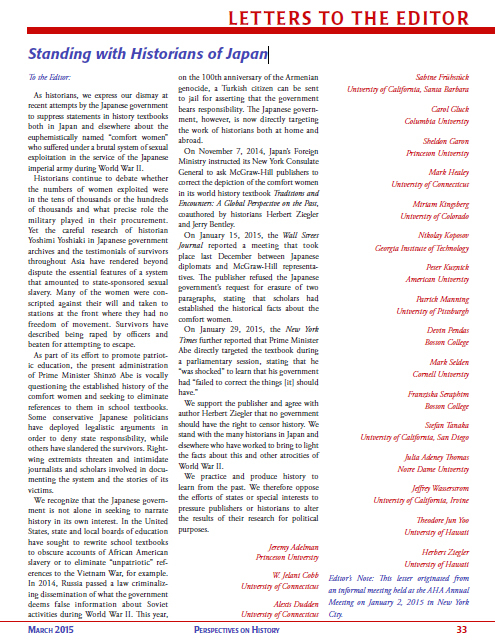
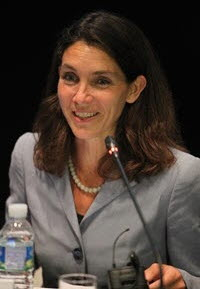
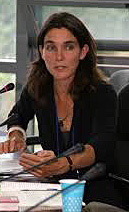

 ICC승인소위 권고이행 토론회 초청장.pdf
ICC승인소위 권고이행 토론회 초청장.pdf





 KTNCWatch_AlternativeReport_141223.pdf
KTNCWatch_AlternativeReport_141223.pdf



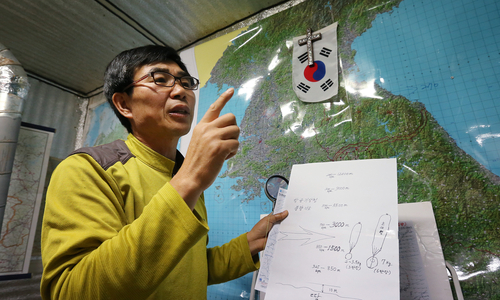
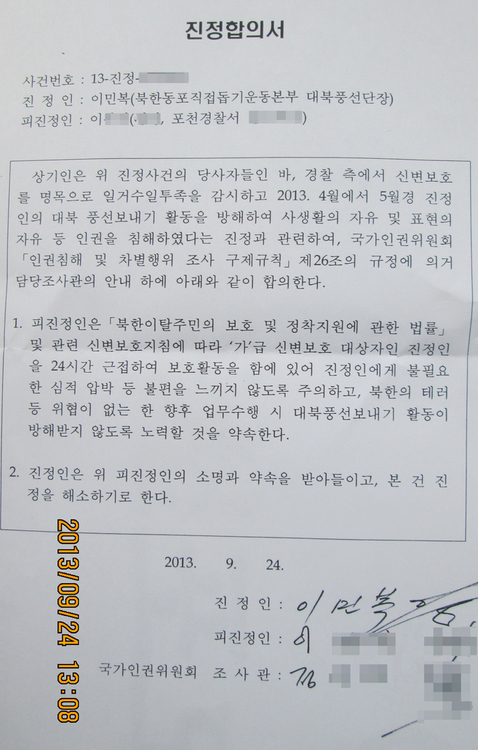
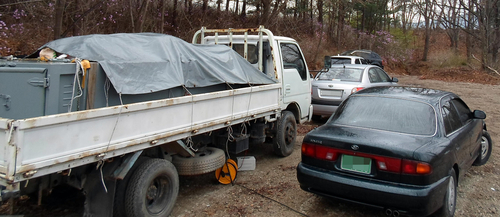
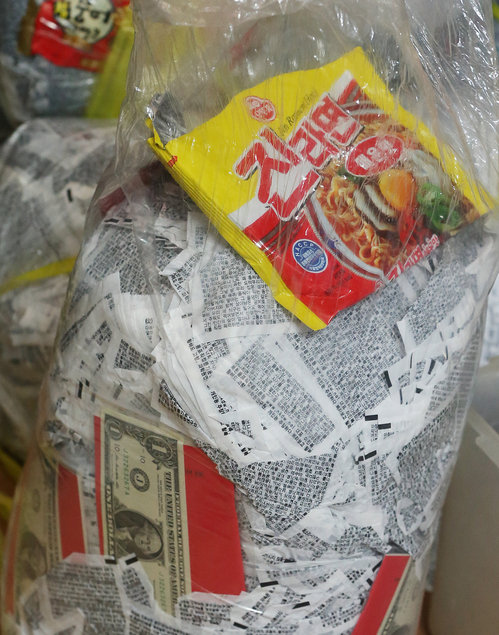
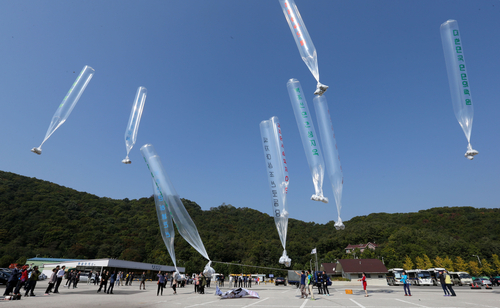

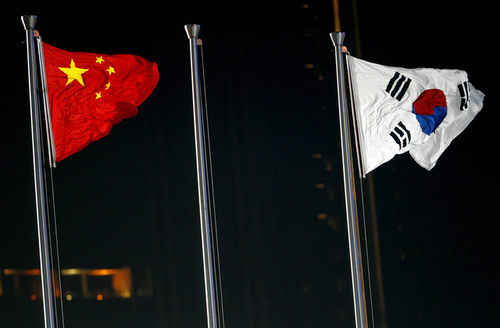
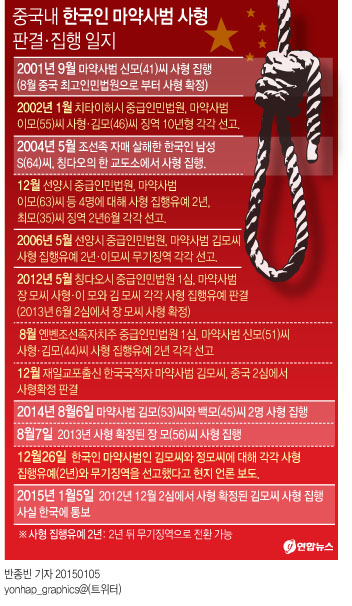
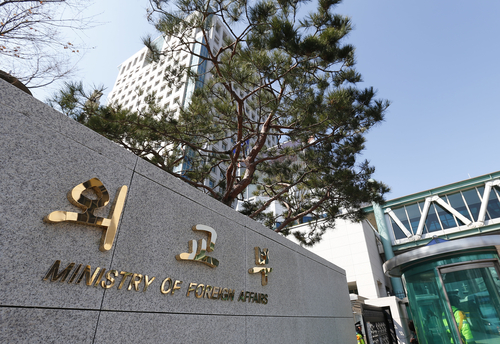


![[자료집]_양심적_병역거부와_대체복무제도_도입의_필요성.pdf](http://www.koreanbar.or.kr/images/common/button/file.gif) [자료집]_양심적_병역거부와_대체복무제도_도입의_필요성.pdf
[자료집]_양심적_병역거부와_대체복무제도_도입의_필요성.pdf

